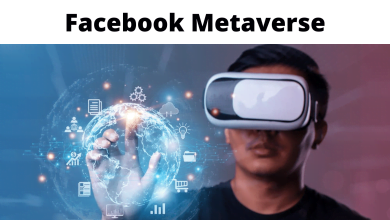
Introduction:
Audio Trimmer is an online tool that lets you trim and crop your MP3 files with ease. It’s perfect for anyone who wants to create custom ringtones, remove unwanted parts of a song, or simply edit their audio files quickly and easily. In this article, we’ll take a closer look at Audio Trimmer’s features, how to use it, and why it’s a great tool for anyone who needs to edit their audio files.
What is Audio Trimmer?
Audio Trimmer is a free, online tool that lets you edit your MP3 files without the need for any additional software. It’s incredibly user-friendly, with a simple interface that anyone can use to trim and crop their audio files. You can use Audio Trimmer to create custom ringtones, remove unwanted parts of a song, or even edit your podcast or audio recordings.
How to Use Audio Trimmer:
Using Audio Trimmer is incredibly easy. Here’s a step-by-step guide to using Audio Trimmer:
Step 1: Go to the Audio Trimmer website: https://neartous.com/audio-trimmer/
Step 2: Click “Open File” and select the MP3 file you want to edit.
Step 3: Use the timeline to select the start and end points of your clip.
Step 4: Preview the trimmed version by clicking the “Play” button.
Step 5: Once you’re happy with the edit, click “Trim” and wait for the file to process.
Step 6: Finally, click “Download” to save the edited file to your device.
It’s that simple! Audio Trimmer is incredibly fast and easy to use, so you can edit your audio files quickly and efficiently.
Top Features of Audio Trimmer:
Audio Trimmer offers a range of powerful features that make audio editing a breeze. Here are some of its top features:
- Easy-to-use interface: Audio Trimmer’s user interface is intuitive and user-friendly, making it easy for anyone to edit audio files.
- Fast processing: Audio Trimmer processes your audio files quickly, so you can edit and download your files in no time.
- Cross-platform compatibility: Audio Trimmer works on any device with an internet connection, including desktops, laptops, smartphones, and tablets.
- Free to use: Audio Trimmer is completely free to use, so you can edit your audio files without any cost.
- Audio Trimmer online free: Audio Trimmer is a free online tool that you can use to trim and crop your MP3 files quickly and easily.
- Audio Trimmer software: Audio Trimmer is a web-based tool that doesn’t require any software installation. All you need is an internet connection to use it.
- Audio trimmer download: After you’ve trimmed your audio file, you can download it in a range of formats, including MP3, WAV, and M4R.
- Audio online trimmer: Audio Trimmer is an online tool that you can use to trim and crop your MP3 files from anywhere with an internet connection.
- Audio clipper: With Audio Trimmer, you can easily clip and trim your audio files to remove unwanted parts of a song or create a custom ringtone.
- Audio cutter: Audio Trimmer lets you cut your audio files quickly and easily, without the need for any additional software.
- Sound trimmer: Audio Trimmer is a powerful tool that lets you trim and crop your MP3 files with ease.
- MP3 audio trimmer: Audio Trimmer is perfect for editing MP3 files, whether you need to create a custom ringtone or remove unwanted parts of a song.
- Audio song trimmer: If you’re a musician or podcaster, you can use Audio Trimmer to edit your audio recordings quickly and easily.
- Online audio cropper: With Audio Trimmer, you can crop your audio files online, without the need for any additional software.
- Online music trimmer: Audio Trimmer is perfect for anyone who wants to trim their music files quickly and easily.
Why Use Audio Trimmer?
There are many reasons why you might want to use Audio Trimmer. Here are just a few:
- It’s free: Audio Trimmer is completely free to use, so you can edit your audio files without spending any money.
- It’s easy to use: Audio Trimmer’s user interface is simple and intuitive, so you can start editing your audio files right away.
- It’s fast: Audio Trimmer processes your audio files quickly, so you can edit and download your files in no time.
- It’s cross-platform compatible: Audio Trimmer works on any device with an internet connection, including desktops, laptops, smartphones, and tablets.
- It’s versatile: Audio Trimmer can be used for a range of purposes, including creating custom ringtones, editing podcasts, and trimming music files.
Final Result:
At the end, Audio Trimmer is a powerful and easy-to-use tool that lets you edit your MP3 files quickly and efficiently. With its simple interface, fast processing, and powerful features, Audio Trimmer is perfect for anyone who needs to edit their audio files. Whether you’re a musician, podcaster, or just need to create a custom ringtone, Audio Trimmer is the perfect tool for the job. So why not give it a try today? Head to https://neartous.com/audio-trimmer/ to get started.



